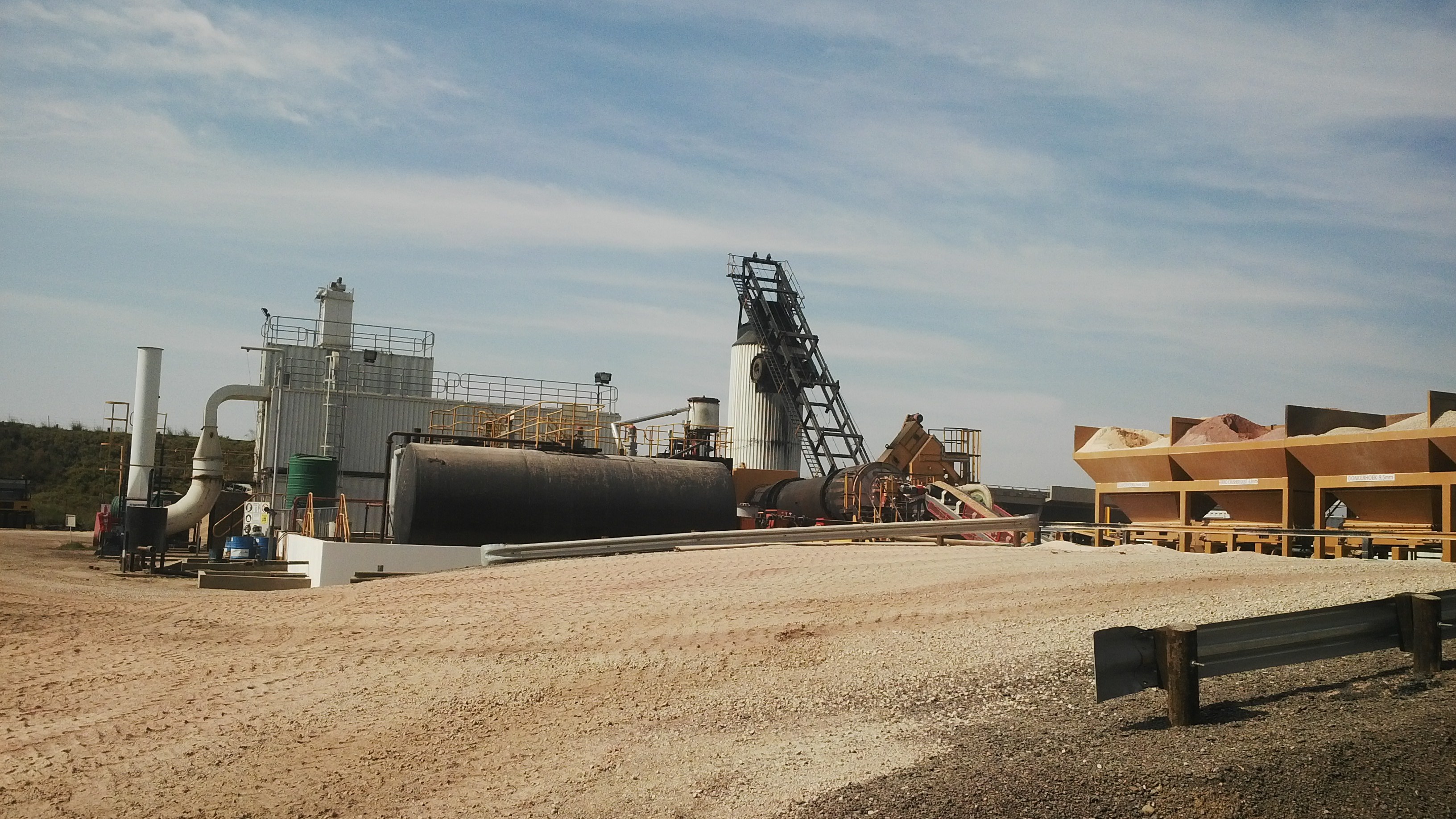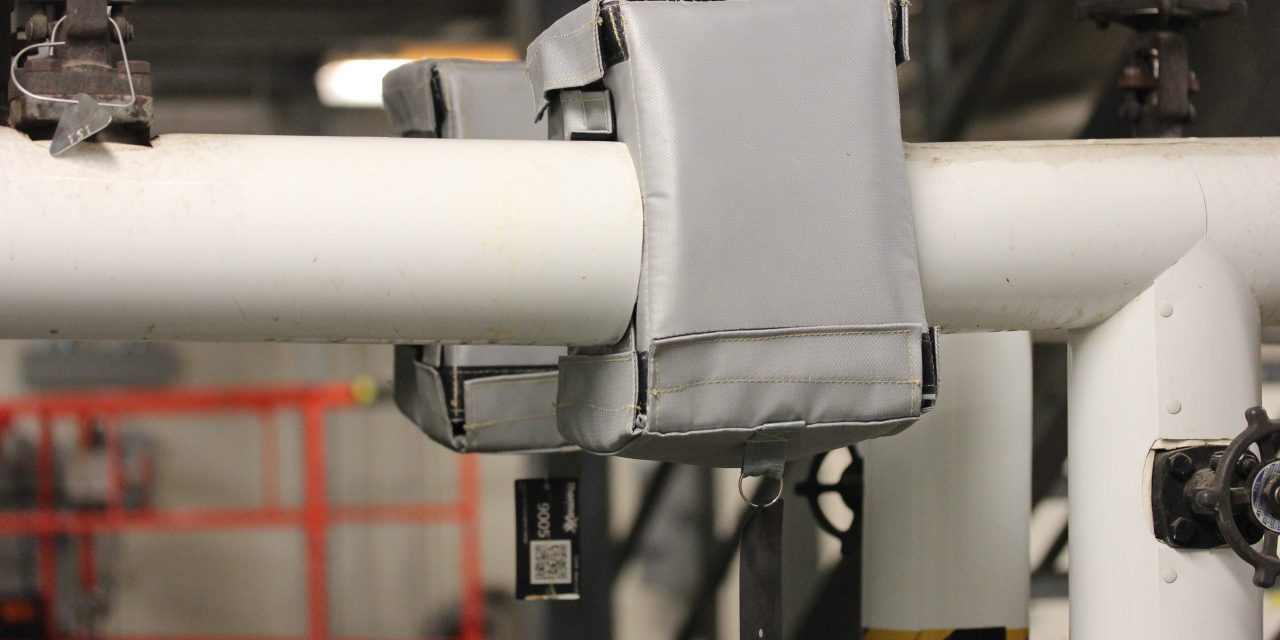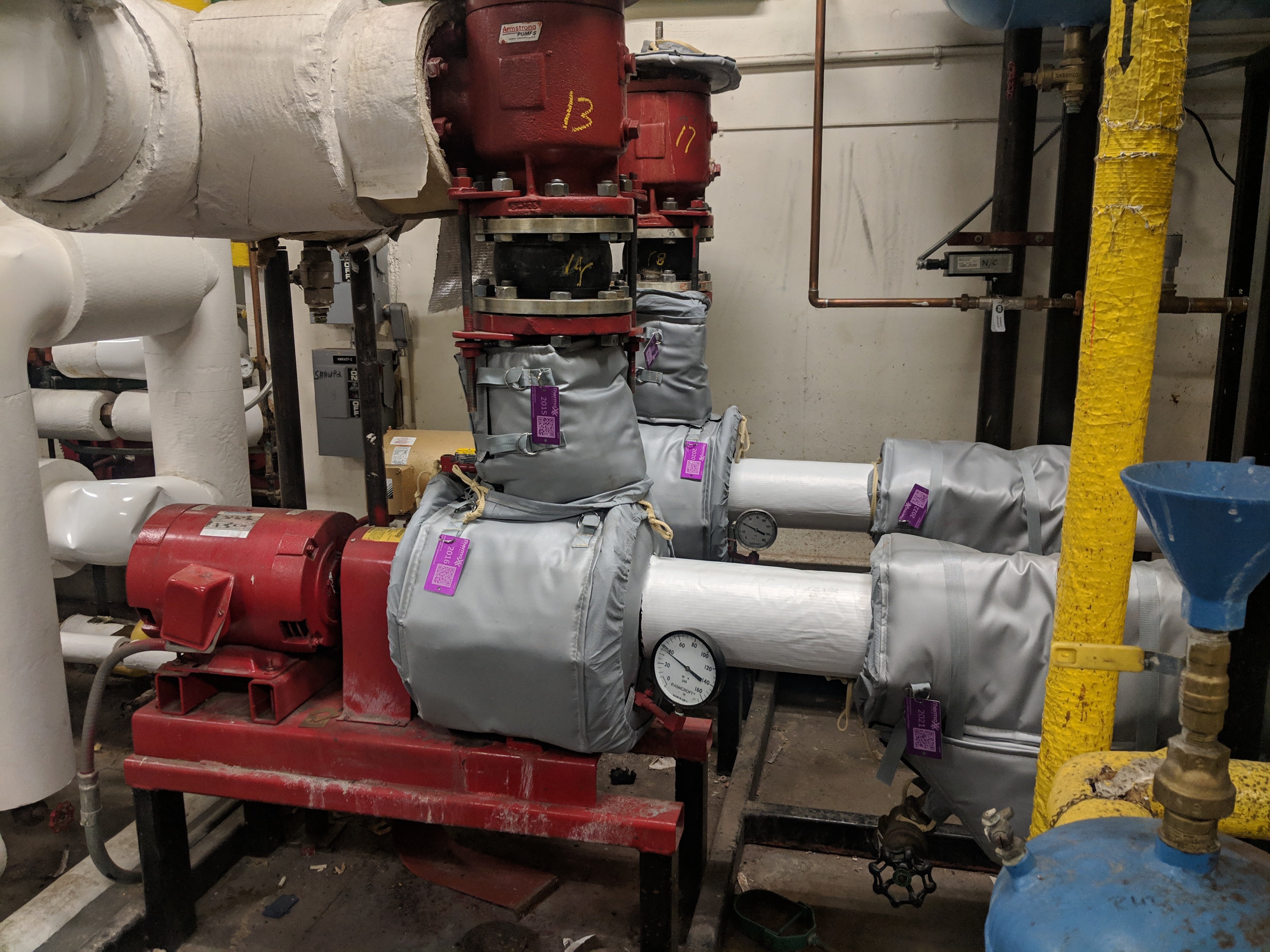Hot Oil Pipe Insulation Blankets
Heat oil transfer is used in many industrial processes where heating or cooling is used to maintain a particular temperature. The asphalt industry uses heat oil transfer to manufacture their product. Hot oil systems for asphalt plants run at an average temp of 350F which makes thermal insulation at these plants a necessity, for energy savings as well as safety.
Since 2018, Thermaxx has been working with one of CT's largest asphalt companies to insulate the hot oil systems at their asphalt plants statewide. The result of this was increased energy efficiency, as well as a more refined process. Thermaxx worked with the customer and the local gas utility company to secure custom gas incentives to help fund this work. Asphalt plants present some unique challenges that traditional steam systems do not. The most notable of these challenges is the location. Asphalt plants are always outdoors and exposed to all elements as well as a wide variety of temperatures throughout the asphalt season which usually runs April - October.
These conditions dictate a slightly different set of materials that we use, as they require protection from sunlight, rain, snow and ice. Thermaxx insulators used traditional fiberglass insulation 2" thick with embossed aluminum jacketing on the hot oil piping. The aluminum jacketing will protect the insulation from UV atmospheres, corrosive atmospheres and water. In additional to the insulation on the hot oil piping, Thermaxx manufactured custom removable insulation for the serviceable components on the system. These components include, pumps, heat exchangers, valves, and elbows.
In most instances, 90 and 45 degree elbows are covered with traditional pipe insulation. However, in these asphalt plants the elbows on the systems had four flex hoses in their configuration which made them very tricky to insulate on-site. Thermaxx designers were able to take measurements in the field and design custom removable jackets made of pyrogel, a high temperature, hydrophobic insulation material.
The onsite labor presented its own set of challenges. An asphalt plant is made up of cold aggregate supply system, drum dryer, coal burner, coal feeder, dust collector, hot aggregate elevator, vibrating screen, filler system, weighing and mixing system and asphalt storage. These systems are built together into a multi-story tower like structure, which makes a good portion of the hot oil piping impossible to access without a manlift. Thermaxx field technicians an insulators are trained and licensed to operate man-lifts so we were able to self-perform all of the labor. It was also important for the insulators to get this work completed over the winter before asphalt season was in full swing.
Ultimately, Thermaxx was able to identify and provide thermal insulation solutions at five asphalt plants across the state of CT. The total scope of work was over 4,000 linear feet of pipe insulation, and 100 removable jackets which saved the customer an estimated 220,575 therms annually.

Meghan Reilly - Account Executive at Thermaxx
Meghan has been part of the Thermaxx team since early 2013 and her territory covers Connecticut to Maine. In her five years with Thermaxx she has helped her clients achieve maximum energy savings with a strong ROI. Meghan is an established partner with local utilities throughout New England and has in-depth knowledge of their custom gas incentive programs. She takes extreme pride in the customer service that Thermaxx provides their clients, and oversees all of her own projects through to completion and 100% customer satisfaction.
Categories
- removable insulation
- thermaxx jackets
- energy savings
- savings
- energy efficiency
- safety
- pipe insulation
- energy
- case study
- insulation materials
- thermal insulation
- heat loss survey
- heat loss
- energy loss
- hot insulation
- fiberglass
- installation
- steam
- New York
- custom insulation
- NYC Case Study
- boiler
- university
- Connecticut
- reusable insulation






